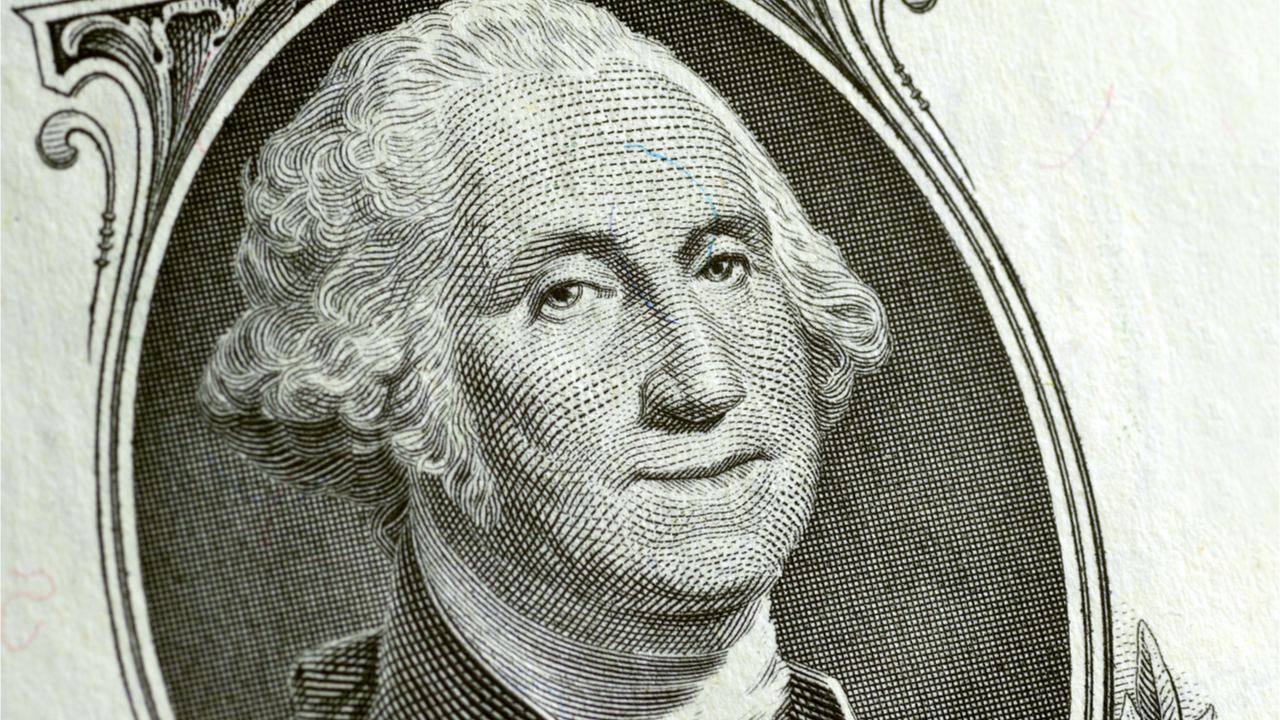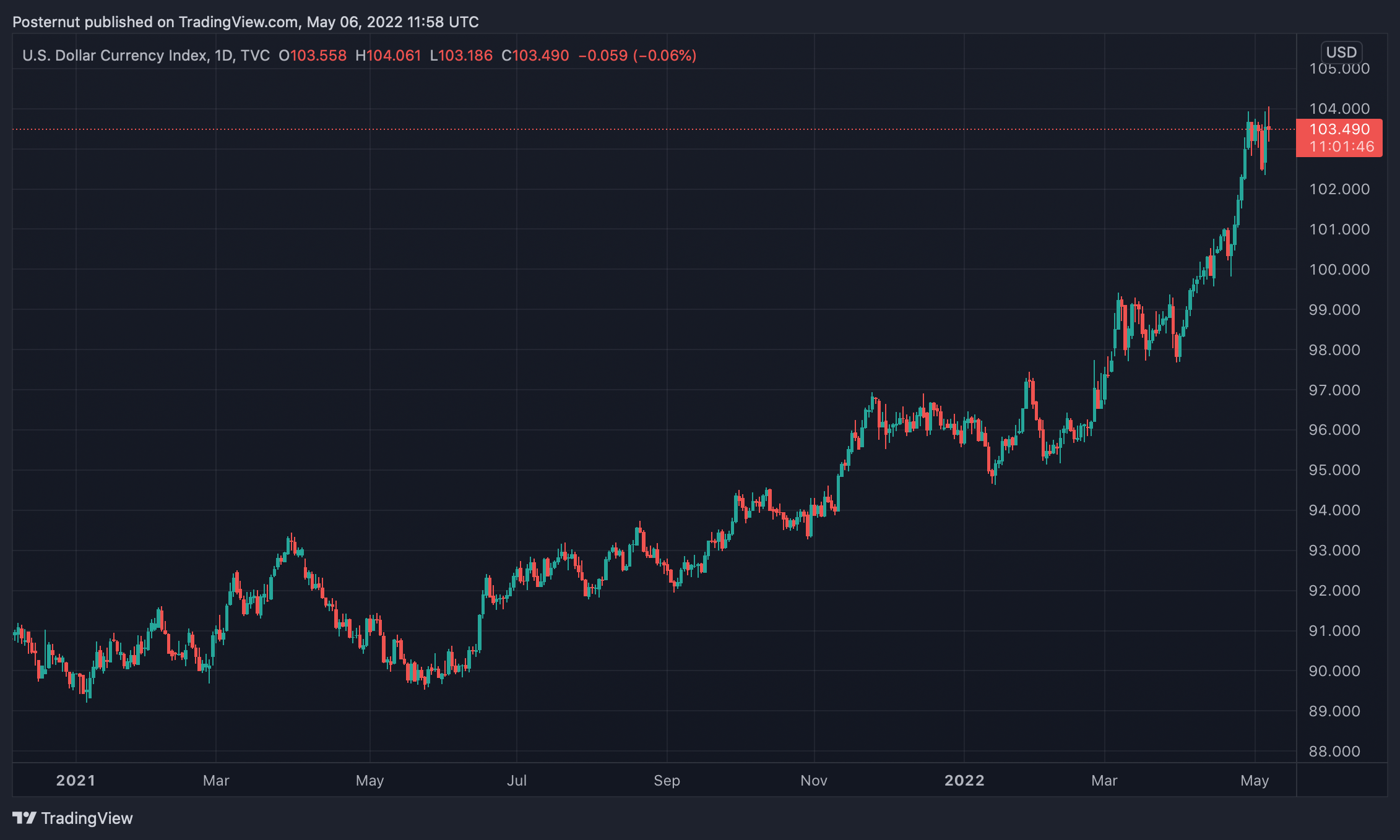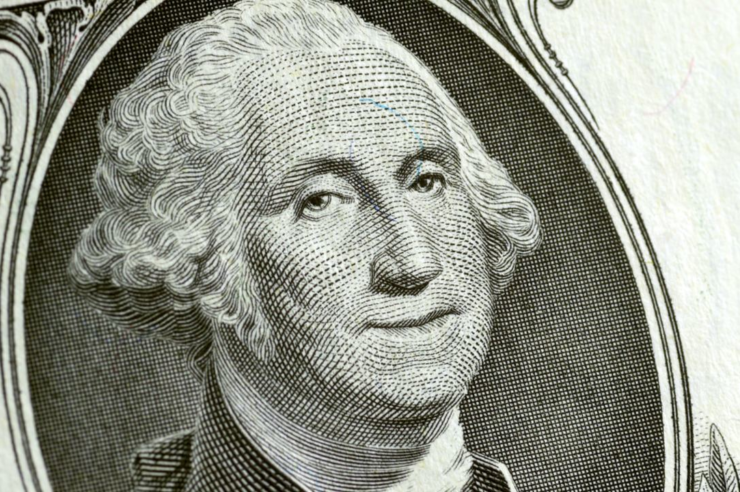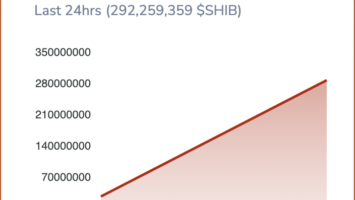
While precious metals, stocks, and cryptocurrencies saw a significant downturn this week, the U.S. dollar tapped a 20-year high against the Japanese yen and a number of other currencies. The greenback has seen five weeks of consecutive gains following the Federal Reserve’s 50 basis point rate hike on Wednesday.
Greenback Climbs Higher Amid Economic Uncertainty
Before the U.S. central bank’s rate hike, the U.S. dollar tapped a two-year high and a 20-year high against the Japanese yen last week. Economic concerns are tied to the ongoing and strict Covid-19 lockdowns in China and the Ukraine-Russia war. Reports note that Beijing may plan to mass-test 20 million people for Covid-19 and the Chinese capital could get locked down.

Moreover, Refinitiv data indicates the market is predicting a 90% chance the Fed will implement a 75 bps hike in June. A majority of financial institutions and market participants correctly predicted Wednesday’s 50 bps increase. Futures markets are forecasting that the chance of a 75 bps hike taking place in June is around 75%.
Statistics show the U.S. dollar index (DXY) reached a 20-year high against a basket of international fiat currencies this past week. Besides the 20-year high against the yen, sterling saw the deepest impact against the greenback. Kit Juckes, a currency strategist at Societe Generale SA, says the U.S. dollar has a knock-on impact.
“The dollar’s rally is like an uphill avalanche,” Juckes said on May 4. “Just as an avalanche picks up snow, rocks, trees and anything else in its path as it slides down a mountain, the dollar’s rally has the knock-on impact of causing more currencies to weaken. A broad-based move, though, tightens global monetary conditions, and so downside economic risks grow.”
Strong Labor Market and Nonfarm Payrolls Report Could Change Fed’s Decision
Investors think the recently published Nonfarm Payrolls (NFP) report numbers could affect the Fed’s next rate hike decision. ”A strong payrolls report could perversely push the market to price in more tightening as the Fed reduced its optionality at its most recent meeting,” analysts at TD Securities said in a statement on Friday. The TD Securities analysts added:
That leaves a resilient USD vs EUR and yen very much the path of least resistance. A softer wages print should help to temporarily take the edge off but this will be short-lived until evidence of a peak/moderation in CPI emerges.
The combination of a strong dollar and the recently published NFP numbers, could make the predicted 75 bps rate increase become a reality. Although it’s still uncertain, analysts at ANZ Bank believe this could be the case. “Whilst the Fed is not currently considering a 75 bps rate increase, that guidance is based on expectations that the trend increase in monthly Nonfarm payrolls will slow and core inflation is stabilising. But there are no guarantees at all that that will be the case.” The ANZ Bank researchers concluded:
Demand for labour in the U.S. remains very strong and core services inflation is rising steadily. The April non-farm payroll and employment reports — [will] carry a lot of significance.
What do you think about the strong dollar and the chance the Fed will increase the benchmark interest rate by 75 bps? Let us know what you think about this subject in the comments section below.
Image Credits: Shutterstock, Pixabay, Wiki Commons
Disclaimer: This article is for informational purposes only. It is not a direct offer or solicitation of an offer to buy or sell, or a recommendation or endorsement of any products, services, or companies. Bitcoin.com does not provide investment, tax, legal, or accounting advice. Neither the company nor the author is responsible, directly or indirectly, for any damage or loss caused or alleged to be caused by or in connection with the use of or reliance on any content, goods or services mentioned in this article.






















Comments (No)